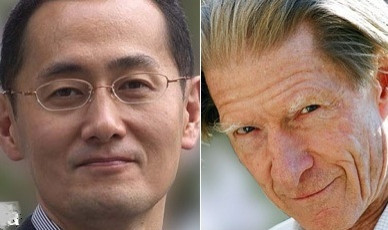Nobel Prize In Medicine Awarded To Stem Cell Researchers

The Nobel Prize in Medicine or Physiology for 2012 was awarded jointly to British scientist John B. Gurdon and Japanese scientist Shinya Yamanaka for their work in stem cell research, the Karolinska Institute in Stockholm announced Monday.
The announcement opens the prestigious award season for this year while the speculation over literature and peace prizes is rife.
"These groundbreaking discoveries have completely changed our view of the development and specialization of cells," the Nobel Assembly at Sweden's Karolinska Institute said in a statement on its website.
“We now understand that the mature cell does not have to be confined forever to its specialized state. Textbooks have been rewritten and new research fields have been established. By reprogramming human cells, scientists have created new opportunities to study diseases and develop methods for diagnosis and therapy," the statement said.
Gurdon discovered in 1962 that the specialization of cells is reversible. Yamanaka discovered more than 40 years later in 2006 how the intact mature cells in mice could be reprogrammed to become immature stem cells. These groundbreaking discoveries have completely changed our view of the development and cellular specialization, the institute has said.
Gurdon was born in 1933 in Dippenhall, the U.K, and received his Doctorate from the University of Oxford in 1960 and was a postdoctoral fellow at the California Institute of Technology. Gurdon is currently at the Gurdon Institute in Cambridge.
Yamanaka was born in Osaka, Japan, in 1962 and received his MD in 1987 at Kobe University and was trained as an orthopedic surgeon. Yamanaka obtained his PhD at Osaka University in 1993. Yamanaka is currently Professor at Kyoto University and is also affiliated to the Gladstone Institute.
© Copyright IBTimes 2025. All rights reserved.






















